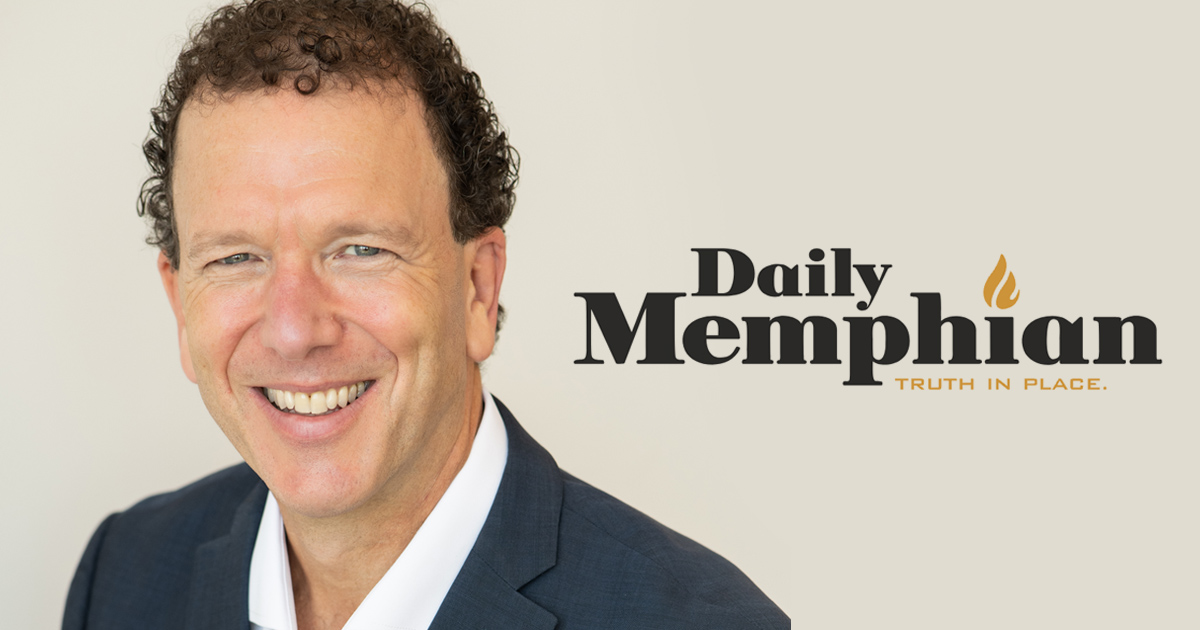Celebrating Passover while immigrants go to bed in fear
By: Rabbi Micah Greenstein | April 13, 2025
Enter a search request and press enter. Press Esc or the X to close.

By Rabbi Micah Greenstein / Guest Columnist / The Daily Memphian
“Chicken soup and matzah balls” was the answer to my question about the best part of the most widely observed Jewish festival of all, Passover.
Last night, Jewish families and friends gathered for Passover under a full moon to reenact the exodus from Egypt.
The fare included ritual foods like bitter herbs and, my personal favorite, a sweet dark-colored mixture of finely chopped fruits and nuts called charoset. Its color and texture, according to the Talmud, are meant to recall the mortar the Israelites used when they were enslaved in ancient Egypt.
For all the food and fun, though, Passover is more than a time for munching on matzah.
There is also a serious call to action for personal and collective responsibility, as the Passover storybook, the Haggadah, proclaims: “In every generation, every person must look upon herself as if she had personally gone forth out of Egypt, as it is said, ‘And you shall tell your child on that day saying, it is because of what the Lord did for me when I came forth out of Egypt.’”
In other words, not only did God redeem ancestors thousands of years ago, but the Almighty also has given us the power to redeem ourselves.
The Passover script reminds us that with freedom of any kind, we cannot blame anyone for our own personal and societal performance except ourselves.
Speaking up and standing up for freedom requires courage in the face of fear. This brings me to my unsung hero this week, an immigrant coworker at my synagogue who is a Christian.
My colleague at work — like many employees in American businesses — contributes to American society, pays social-security tax and adds vitality and life to the social fabric of Memphis and America.
He is not a dangerous criminal cartel member. In other conversations with Mexican wage earners, Venezuelan cooks and Haitian taxi drivers, their yearning for freedom and safety reminds me precisely of the universal Passover story the Jewish people commemorate for a week.
Ancient Egypt, known as “Mitzrayim” in the Bible, means a “narrow confined place.” Recent exchanges with immigrants have taught me that despite their seemingly trapped condition in the face of fear, even they — the most vulnerable among us — have a choice.
One immigrant put it this way: “Who we, the wrongly targeted, choose to be when presented with the opportunity to care about, stand with, speak up for or give up something of our ourselves as a simple act of humanity — that choice is up to us.”
Surprisingly, God did not begin the process of liberation we read about in the Bible. It is the enslaved Israelites in the land of Egypt who cried out in their distress, and God responded.
Human initiative began the process, and human action inspired by God is what led to freedom from Egyptian tyranny.
As my family and most Jews worldwide celebrated freedom on Passover eve, many immigrant families of other faiths went to bed in fear in America.
For them, the experience of escaping from bondage to this land of freedom has suddenly become precarious, uncertain, even terrifying.
Passover is not a once-upon-a-time freedom story. What happened once upon a time happens all the time, which is why we pray for a better tomorrow, not for ourselves alone but especially for the most vulnerable immigrants among us.
I love how Passover always arrives under a springtime full moon to remind us it’s never too late to grow into a more just, whole, free and compassionate society, the kind of world God placed in our hands either to build or destroy.
At the Seder table, among the most overlooked symbols is the fifth cup of wine (or grape juice) known as “Elijah’s Cup.”
It began back in the second century when the early rabbis after Jesus’ time were establishing the rituals of the Passover Seder.
A disagreement arose as to whether there should be four cups of wine or five. The custom of drinking multiple cups of wine was derived from God’s promises to the enslaved Israelites.
Four promises follow one another in rapid succession: “I will free you,” “I will deliver you,” “I will redeem you” and “I will take you to be my people.” Then after an intervening verse, a fifth promise appears: “I will bring you into the land …” (Exodus 6:6–7).
This fifth cup of redemption recalls God’s deliverance of an enslaved people into a free land.
Elijah the Prophet, the forerunner of the Messianic Age, represents when war and violence will give way to true harmony and peace.
The Passover home service does not conclude before the assembled open the door for Elijah and pray for the arrival of that Messianic day when tears of joy will replace cries of pain and sorrow.
At my home Seder, rather than view a filled Elijah’s Cup I ask family and guests around the table to pour some of their own wine into Elijah’s cup.
This is an invitation to express their commitment to help bring about that better time known as the Messianic Age, a symbolic acknowledgment that changing the world as it is into the world it can be requires our active participation.
Freedom is hollow and meaningless until and unless we accept responsibility individually and communally for assuring freedom for all.
This site uses cookies to offer you a better browsing experience. If you continue using our website, we'll assume that you are happy to receive all cookies on this website and you agree to our Privacy Policy.